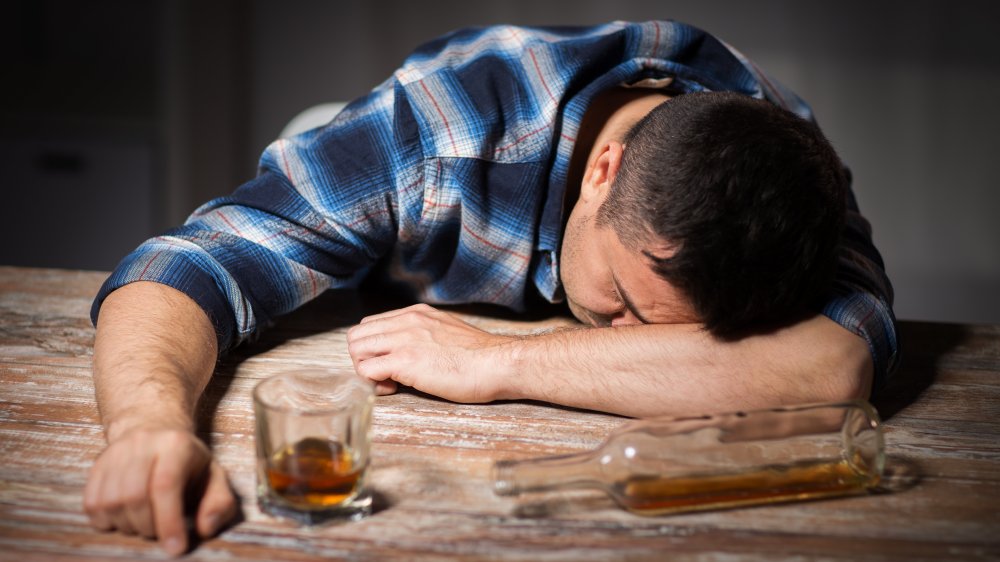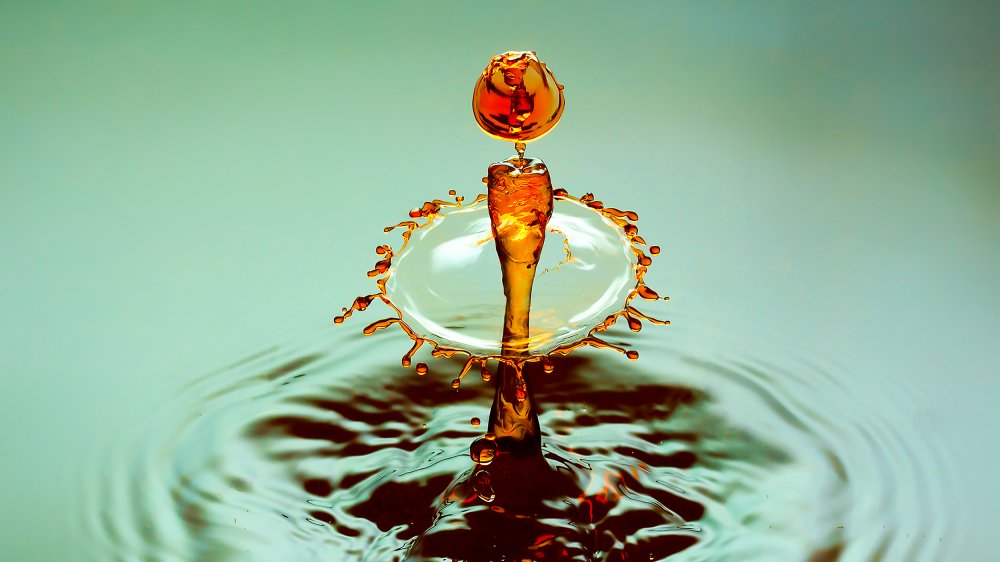Here's What Happens When You Drink Whiskey Every Day
Whiskey is one of the most popular hard liquors out there and has seen a recent explosion in popularity. Long thought of as an old man's drink in past years, sales among young drinkers has skyrocketed. Actress Mila Kunis was even chosen to endorse Jim Beam to make the brand more appealing to young people (via Forbes). In the United States, the number of 9-liter cases of whiskey sold has increased from 47 million in 2010, to 69 million in 2019 (via Statista).
This pattern is mirrored across the globe. With drinkers ages 18-34, sales of whiskey have doubled in Australia, with one source pointing out that the period of growth occurred at the same time as the hit AMC series Mad Men, which featured the hard-drinking Don Draper and Roger Sterling (via Metro Mag). If they were real characters, they'd be a good source to ask about the effects of drinking whiskey every night, but as they're not, a little bit of research will have to suffice instead.
Drinking whiskey can result in weight loss, compared to beer
Compared to beer, whiskey has significantly fewer calories. A standard serving of a whiskey is 1.5 ounces, according to The National Institute of Health, and contains around 100 calories, assuming that the whiskey is a standard 40 percent alcohol. A standard 12-ounce serving of beer, on the other hand, can contain nearly double the amount of calories (via Men's Health). As a result, if you limit your beer drinking and replace it with whiskey instead, the decrease in calorie intake can lead to a loss in weight. While it's possible to find beer with fewer calories than whiskey, the selection will be limited to light, largely-flavorless light beers such as Michelob Ultra and Corona Light (via Good Housekeeping).
On top of the low calorie count, the distillation process causes it to be gluten free, which makes it an option for people with intolerance to wheat (via Beyond Celiac). However, this doesn't mean that whiskey is completely free of additives, even some of the most expensive and high end varietals of single malt whiskey often contain caramel coloring to enhance the color of the beverage (via Vinepair).
Whiskey actually might provide health benefits
Drinking whiskey can result in a number of unexpected benefits as well. For example, single malt whiskey contains more ellagic acid, an antioxidant which destroys free radicals in the body, than red wine does (via Wide Open Country).
If you feel a bit under the weather, whiskey can help with cold symptoms as well. In fact, during prohibition, whiskey was allowed to be imported into the United States because it was considered a medicine and was sold in pharmacies (via Forbes).
Because alcohol dilates the blood vessels, hot alcoholic drinks such as hot toddies, made with whiskey, are often used as a home remedy to deal with congestion. Whiskey has also long been used to sooth sore throats, sometimes also in conjunction with honey and lemon. And although there's no way to prove it, the oldest woman in the United Kingdom, a 110-year old named Grace Jones, attributed her longevity to having a glass of whiskey every evening.
You might get a headache in the morning
Dark liquors such as whiskey or dark rum are more likely to cause a hangover than clear liquors such as vodka or gin (via Manchester Evening News). This is because dark liquors tend to contain more chemical compounds, called congeners, which the body breaks down into toxins like formic acid and formaldehyde, which can make a hangover worse (via Bustle). In a study, drinkers consumed the same amount of vodka and bourbon (a type of whiskey produced in Kentucky). While a third of the bourbon drinkers reported that they had a headache the next day, only three percent of those who consumed vodka said that they had a hangover.
You can attempt to mitigate the problem by staying hydrated while drinking. Though it certainly won't prevent against a hangover if you overdo it a bit, it can certainly aid in lessening the severity (via Healthline).
If you drink whiskey, moderate your consumption
According to The Associated Press, recently, the federal government's dietary guideline for how much alcohol is considered healthy to consume on a daily basis was lowered to one drink daily for both men and women. Previously, it had been two for men and one for women, and this guideline had been in place since 1990. One of the researchers who consulted on the decision said, "As a nation, our collective health would be better if people generally drank less."
The research showed that there was a link between alcohol and numerous causes of death including drunk driving accidents, heart attacks, and various types of cancer. Research showed that an increase from one drink daily to two slightly increased the risk of death from all causes. However, the increase was substantial enough to issue the new guidelines.




